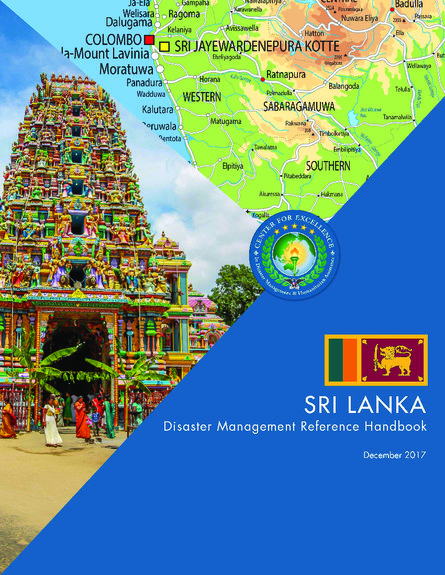
Sri Lanka is a lower middle-income country with an estimated total population of 21.2 million people. For decades the country was fraught with civil war, which ended in 2009. The civil war affected the national economy, foreign trade and investments, and the livelihoods of the Sri Lankan people. The end of the civil war in 2009 brought about legislative commitment to reconstruction and economic growth. This has allowed the economy to grow, an average of 6.2 percent annually. Since 2009, Sri Lanka has observed many elections and changes in leadership. Sri Lanka is still rebuilding as human rights grievances over war crimes and violations remain unsettled. The Government of Sri Lanka is concentrating on passing constitutional and economic reforms, advancing public financial administration, expanding public and private investments, addressing infrastructure restrictions, enhancing government effectiveness, and directing governmental service distribution.
Recently, Sri Lanka has been impacted by multiple natural disasters. Sri Lanka experienced a landslide in October 2014, and flooding in December 2014. Sri Lanka withstood the worst drought conditions witnessed in four decades in 2016; the extreme drought conditions extended into 2017 and produced substantial economic and social effects. The drought was responsible for an increase in national poverty levels, due to reduced cultivation income, especially for rural farmers. Estimates suggest over 500,000 families were affected by the drought conditions in 20 districts, forcing the Government of Sri Lanka to initiate relief programs. In May 2016, Sri Lanka was hit by a tropical storm that caused widespread flooding and subsequent landslides. One year later, in May 2017, Sri Lanka experienced continuous rains causing flash floods and extreme devastation. However, despite natural disasters and challenges posed by a complex political environment, Sri Lanka’s financial performance remained largely satisfactory in the first half of 2017. Sri Lanka has mainly remained an agricultural nation. Rice, tea, rubber, and coconut are significant cultivated crops in Sri Lanka. Cocoa and spices such as cinnamon, cardamom, nutmeg, pepper, and cloves are notable crops.
